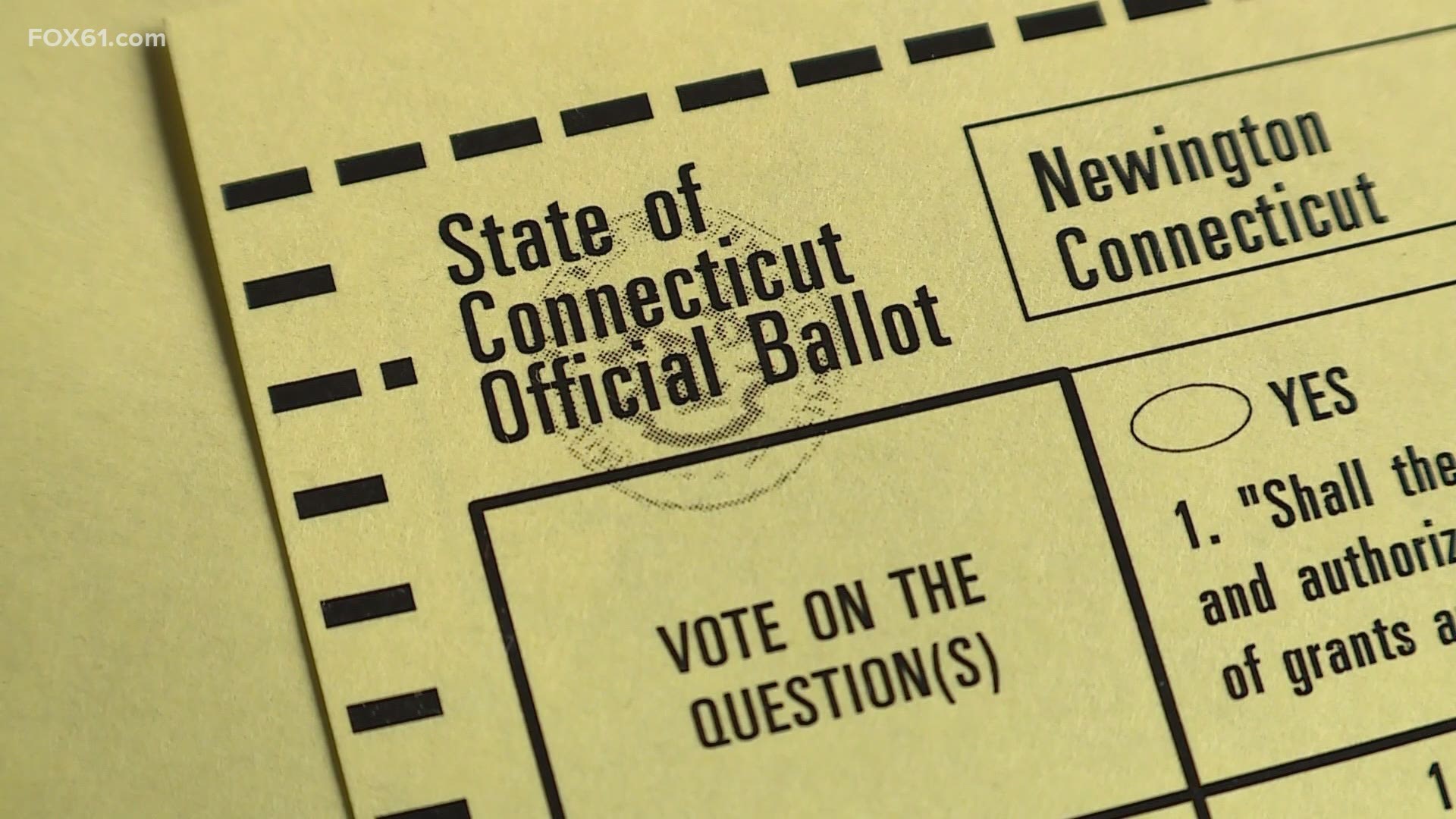HARTFORD, Conn — A new proposed bill could potentially fine state residents if they do not vote in state elections.
Officials say the controversial proposal's purpose is to make several changes designed to institute universal civic voting.
People FOX61 spoke to about this proposed bill are a bit at odds for a possible fine while others say this will be good for the state.
Christian Meissenn said, "Nobody should be for not voting if they choose not to vote."
Carol Griffith from West Hartford disagreed with Meissen said, "It makes sense to me because the more people that vote it's the opinion of the state and people shouldn't be able to complain."
John O’Toole said, "I would think you don't need much motivation if you pay attention to the issues and everything else."
If this proposal is enacted, according to the proposal, all eligible voters will be required to vote for every state election starting as soon as 2024
If not, the statute would require the Secretary of State's office to send a survey asking 'why not?'.
And if there is no "valid excuse" or reply to the survey, a person could be fined twenty dollars.
FOX61 reached out to State Senator Will Haskell who introduced the proposal.
He hopes this idea will start real conversations.
State Sen. Will Haskell said, “Of course, I don't think this proposal will become law overnight but I do hope that it will shift the conversation and make us realize that voting in Connecticut is not as nearly as convenient as it should be."
The state senator says people can still refuse to vote at the polls.
Haskell says his purpose is to promote more voter participation.
As for his colleagues who may disagree with this bill, Haskell said, "Perhaps they'll join me and, in a compromise, and consider we pass early voting in Connecticut, we out to pass 'No Excuse Ballot Reform' before such a requirement could be implemented we need to do the work so that voting is accessible and convenient for all in Connecticut."
One of the people we spoke to says if this law passes, it should be expanded to those who can't vote like convicted felons who have been let back into society.
Meissenn said, "I think the voting process should be free, isn't that what this country is all about?"
The bill's language doesn't expand to felons, but its goal remains the same.
Haskell said, "Regardless of what political party you are from surely we all agree that democracy is better when more people are participating and that's what this bill seeks to accomplish."
This legislation is still just a proposal and will have to still be voted on in the joint committee on government administration and elections.

